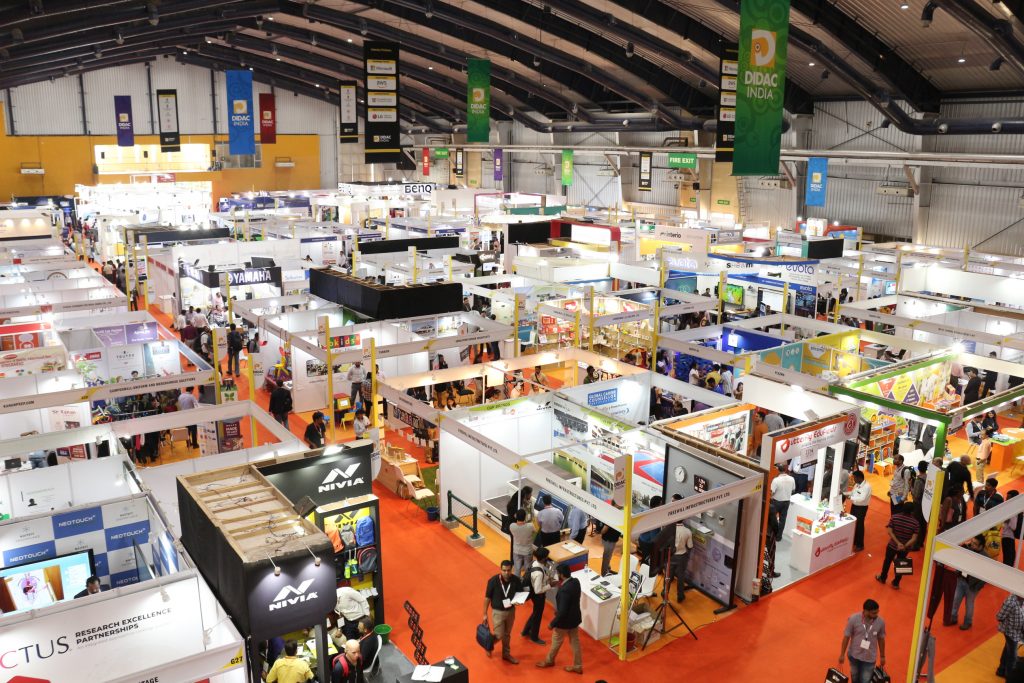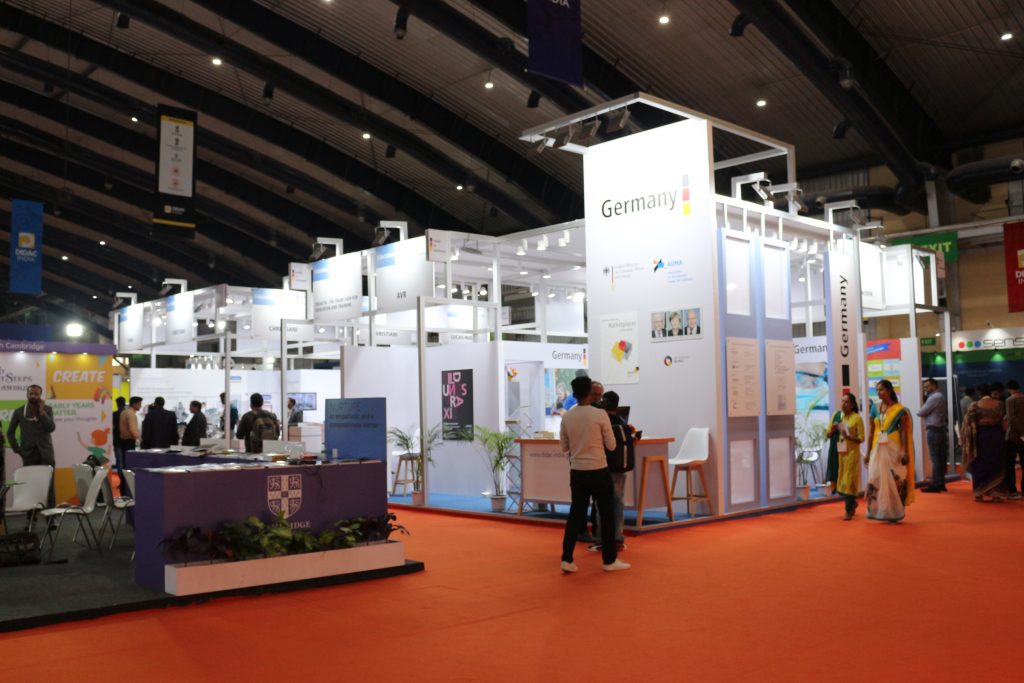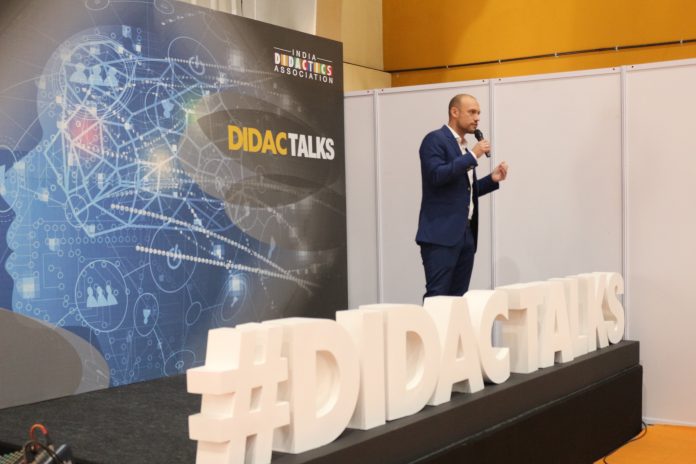At DIDAC India, educators focused on how instruction should change and exhibitors tried to pave the way with their products that could aid teaching.
In the digital era of exponentially changing times, what the schools have been delivering in the recent past is not what is expected from them in the days to come. Grooming the children for these unknown challenges is a formidable test for schools and teachers.
Almost all the schools have been open in subscribing to the services and support externally available and to adopt to some of the edtech products available in the market that will help them in their purpose to support children.
DIDAC India is one of the biggest exhibitions and conferences targeting the education and training sector. Now in its 11th edition, this year’s event in Bangalore, threw light on future trends in the education space.

Delegations from countries like Britain, Germany, Australia, China and a few more put on display their innovations and practices for the 15,000 and more educators who visited the event during the three days between September 24 and 26 September in Bengaluru.

The event served as a platform for all the educators to interact among themselves and with the exhibitors to be aware of the recent and future trends in their domain.
With the edtech market estimated to touch $2 billion within the next two years, there were a lot of products and services ranging from smart boards to content and curriculum, from assessments to publishers, Learning Management Solutions (LMS) and school Enterprise Resource Planning (ERP). Teacher support services, music, play and sports material, school and classroom furniture, customised app development, uniforms, shoes, test prep and overseas education, STEM/STEAM learning support, robotics, school finance support, school design consultants and many more.
At the workshops, on the other hand, concerns raised by speakers and participants focused on ways to train and motivate teachers and students. There were sessions on inclusive education as well as discussions on how to make schools more collaborative, open-minded and harmonious spaces that equipped children not just with knowledge but life skills.
The conference attracted a diverse audience ranging from school teachers in government and private schools from metros and smaller towns across the country, as it did a host of teacher trainers and special educators.

In this context, The Learned Talk spoke to a few participants on what changes school education in India can expect in the future. The opinions also touched upon what changes were needed.
DIDAC organisers while speaking about the event mentioned that education in India has witnessed a paradigm shift in recent times. There was once a time when the guru, his knowledge and experience were considered infallible and total. Today education is witnessing unprecedented scrutiny from all segments of society. And for the most part rightly so.
The world is changing at a previously inconceivable pace. We must now understand that we are preparing our children for the unknown, unseen and unpredictable. The goal of modern education is to focus on ensuring that children will be problem-solvers, decision makers and enablers.
Nirupama Krishnan, Facilitator at the Special Education department in Chennai’s Omega International School, who was a participant at DIDAC, says, “Children aren’t bold enough to experiment or do simple tasks. They have to be told that it’s okay to make mistakes.” Most of a child’s waking hours are spent in school and it’s imperative that the teaching objectives are reordered to prioritise these concerns Students need to leave school with life skills that help them navigate challenges even if they don’t know the solutions to them.
David Cordover, CEO of the Australia-based Kids Unlimited, which seeks to enhance children’s knowledge through programmes using science, engineering, food, art and chess, says that attitude will become a vital concern.“In the near future schools, educators and teachers will come to realise that knowledge and skills are not enough to support a child on a journey to be successful and globally impactful. Importantly, the attitude of students is critical. So, we are going to see more teachers and schools trying to deliberately influence the values and attitudes of the students,” he says.
Prerna Shivpuri, Academic Head of non-profit teacher education firm I Am a Teacher, says it’s time to bring the pride back into teaching. “A drastic change in teacher education is necessary,” she says in her session ‘Coaching Conversations’. The concern that teaching is not the favoured or first choice of many teachers and how that affects the instruction students receive was voiced by many participants. Teachers must believe that they are teaching something not because it’s just part of the syllabus but because the learning can impart life skills, Ms. Shivpuri said.
It’s not that everything we see around us is going to last forever and demand space in our campus. It’s a new challenge and responsibility to wisely understand each of the products and technologies on offer even if we are not keen on buying one.
With NCERT and other regulatory boards emphasising learning outcomes and NITI Aayog’s recent announcements on SEQI to assess the quality of schools across India based on the various parameters that they have defined, the schools and classrooms will go through radical changes in pedagogy and purpose of schooling. Awareness about the services available around will help schools take right decisions in choosing one or create one for their own.







